How AI is Transforming Healthcare Industry
6 Aug 2025 Category: Blogs Tags: Artificial Intelligence in Healthcare
Introducing: The Role of AI in Healthcare
The emergence of artificial intelligence (AI) in healthcare has been innovating the way we treat, diagnose and monitor patients. This technology drastically improves healthcare research and outcomes to accurate diagnosis and customized treatments.
Artificial intelligence (AI) is revolutionizing a number of industries in today’s fast changing world, with the healthcare sector leading the way. AI in healthcare is making it possible to make quicker, more accurate, and more intelligent decisions through the use of predictive analytics, robotic surgery, and diagnostic tools. One of the most revolutionary uses is in medical coding, where medical artificial intelligence ensures regulatory compliance, speeds up workflows, and removes human error.
This blog explores the depth of AI and healthcare, the applications of AI healthcare tools, and how medical diagnosis AI is shaping the future. We also introduce how AI-powered solutions like Sedate, Conrad, and Cogent align with this movement to elevate efficiency and healthcare quality.
Introducing: The Role of AI in Healthcare
The emergence of artificial intelligence (AI) in healthcare has been innovating the way we treat, diagnose and monitor patients. This technology drastically improves healthcare research and outcomes to accurate diagnosis and customized treatments.
Artificial intelligence (AI) is revolutionizing a number of industries in today’s fast changing world, with the healthcare sector leading the way. AI in healthcare is making it possible to make quicker, more accurate, and more intelligent decisions through the use of predictive analytics, robotic surgery, and diagnostic tools. One of the most revolutionary uses is in medical coding, where medical artificial intelligence ensures regulatory compliance, speeds up workflows, and removes human error.
This blog explores the depth of AI and healthcare, the applications of AI healthcare tools, and how medical diagnosis AI is shaping the future. We also introduce how AI-powered solutions like Sedate, Conrad, and Cogent align with this movement to elevate efficiency and healthcare quality.
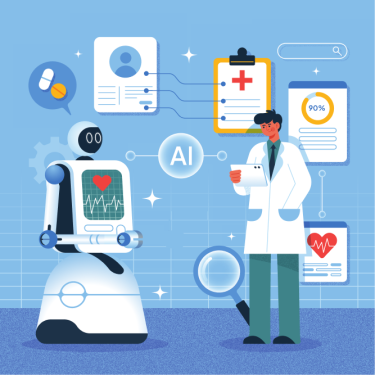
What Is Artificial Intelligence in Healthcare?
Artificial Intelligence in healthcare refers to the machine based platform that recognize patterns, analyse data to make decisions and to assist with administrative and clinical duties. It covers technologies such as computer vision, robotic process automation (RPA), machine learning (ML), and natural language processing (NLP).
Understanding how AI is used in healthcare to enables providers fully utilize AI. AI applications healthcare sector are revolutionizing workflows in a variety of ways, from coding diagnoses from clinical notes to forecasting patient risks. As AI healthcare continues to evolve, its scope only expands.
How has AI impacted the health industry?
The AI application healthcare sector is rapidly advancing across multiple domains, making AI in healthcare industry more versatile and impactful than ever before:
- Manual imaging and diagnosis
AI tools in medical artificial intelligence detect anomalies in scans such as fractures, tumors or blockages which is enhanced with speed and precisions. This tool will support radiologists by highlighting high risk areas, thus increasing diagnostic confidence and reducing oversights. Radiology workflows will become smarter and faster with AI-enabled computer vision and deep learnings.
- Personalized medicine
Treatment cost can be customized for each patients using AI-driven genomics and data modeling. In order to provide tailored, patients- specific treatments, AI in healthcare uses machine learning to examine genetic data, medical history, and medication reaction. The future of proactive, value-based care lies in tailored medicine.
- Predictive Analytics
Large data base from insurance claims, EHRs and genetic profiles are analyzed by AI algorithms to forecast risk like sepsis, hospital readmissions or advancement of chronic diseases. Physicians can reduce patient’s compliance and support AI in healthcare by the help of predictive analysis to intervene earlier.
- Chatbot and Virtual Assistance
Healthcare AI chatbots handles clinical and administrative tasks like real-time query resolution, medications remainders, and appointments scheduling. These virtual assistance lessen the workload for front-li ne healthcare professionals and increase accessibility.
- Medical Coding Automation
Medical coding automation is one of the most obvious uses of AI in healthcare. AI reduce human errors, assigns ICD and CPT codes using Natural Language Processing (NLP), reads clinical notes and verifies compliance in real time. This advancement in AI healthcare guarantees accuracy, speeds up revenue cycle procedures, and lessens administrative workload.
AI for Medical Diagnosis: The development Healthcare Professionals
Medical diagnosis ai makes it possible to use clinical data for early and accurate diseases detections. The tools powered by ai in healthcare now perform faster and more accurately than conventional techniques for tasks like determining the risk of heart disease, cancer stages, and diabetic retinopathy.
The integration of AI in healthcare empowers physicians with decision making authority, which eventually improves outcomes. These systems enable healthcare providers to concentrate more on patient care and less on administrative duties when paired with automation tools.
Benefits of AI in Healthcare
Beyond the operational gains, the benefits of AI in healthcare flows with,
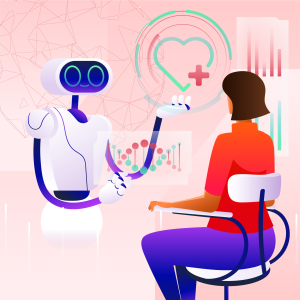
Faster Diagnostics: provide real-time insights to cut down diagnosis time.
Better outcomes for patients: personalized care pathways based on AI-predictions.
Effective operations: Boost up billing and documentation process.
Cost reduction: reduces staffing cost and redundant testing.
Compliance & Accuracy: increases adherence to regulations and data integrity.
These advantages will be standard in hospitals and clinics as AI and healthcare develop together.
Challenges for artificial intelligence in healthcare
Despite rapid advances in AI healthcare, challenges still persist,
- Date security and privacy: protecting confidentiality and adherence to HIPAA.
- Connecting Legacy Systems: connecting new AI tools with outdated software.
- Staff Training and Adoption: effective utilization of AI by administrators, doctors, and programmers.
- Ethical and Legal Boundaries: Making sure AI in healthcare complies with moral medical standards.
These consideration are crucial for sustainable success with AI in healthcare industry.
Expanded use of AI in healthcare
The use of AI in healthcare has evolved into diverse real-word application:
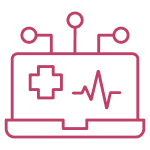
AI-Powered Population Health Tools: Make proactive measures possible by using data that is predicted.
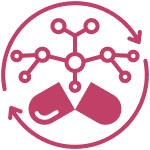
Digital twins for clinical trials: replicate how people react to medications in the real world.
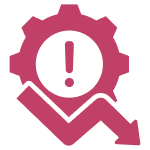
Predictive Behavior Modeling: Aid in locating early warning signs of patient decline.

Voice-Activated EHR Assistants: Reduce documentation time.
Here are some of the examples:
AI in surgery: AI-guided robots increase accuracy during minimally invasive operations.
Clinical Decision Support Systems: Provide evidence-based suggestions in real time.
Telemedicine Optimization: Workflows for virtual care are improved by AI-driven triaging.
These developments demonstrate that AI in healthcare is a catalyst for a new standard of care rather than merely an improvement.
AI Medical Coding: Transforming Documentation at Scale
In order to properly bill and reimburse claims, medical coding is an essential procedure. Coders no longer need to manually go over lengthy patient charts or worry about compliance gaps due to AI tools. Medical artificial intelligence now enables,
- Codes are automatically suggested from clinical notes.
- Real-Time Error Identification and Fixing
- Prediction for Complicated Multiple medical conditions
- Analysis of Unstructured Data Using natural language processing
Faster turnaround, fewer rejections, and greater coder satisfaction will be ensured by these developments. They are part of a larger trend in which repetitive administrative tasks are being replaced by AI healthcare solutions.
AI Applications for Medical Coders and Revenue Cycle Managements
Revenue cycle teams are now supported by innovative artificial intelligence and healthcare platforms by:
- Quickly Assigning CPT and ICD-10 Codes.
- Promoting Crosswalk Accuracy between Systems.
- Managing in and out network classification
- Optimizing Payment Posting and Charge Entry
- Automating Eligibility and Insurance Verification Checks
- Enhancing A/R Processing and Denials Management
These features make AI in healthcare an indispensable part of back-end operations.
Introducing ArtigenTech’s Role in the AI Healthcare Evolution
Sedate AI: Transforming Anesthesia Coding
- Sedate AI is an expert at precisely coding for anesthesia. It guarantees to anesthesia coding guidelines ensuring compliant anesthesia medical coding.
- Solves anesthetic challenges like proper CPT code mapping and accurate time unit calculations.
- Functions as a coding anesthesia solution that blends in seamlessly with clinical workflows.
- Supports hospitals and ambulatory centers as advanced anesthesia medical billing software.
- Sedate AI also operates as anesthesia billing software, medical billing software for anesthesia, and anesthesiology billing software.
- Reduces rework and audits by giving programmers AI-driven insights for real-time documentation support.
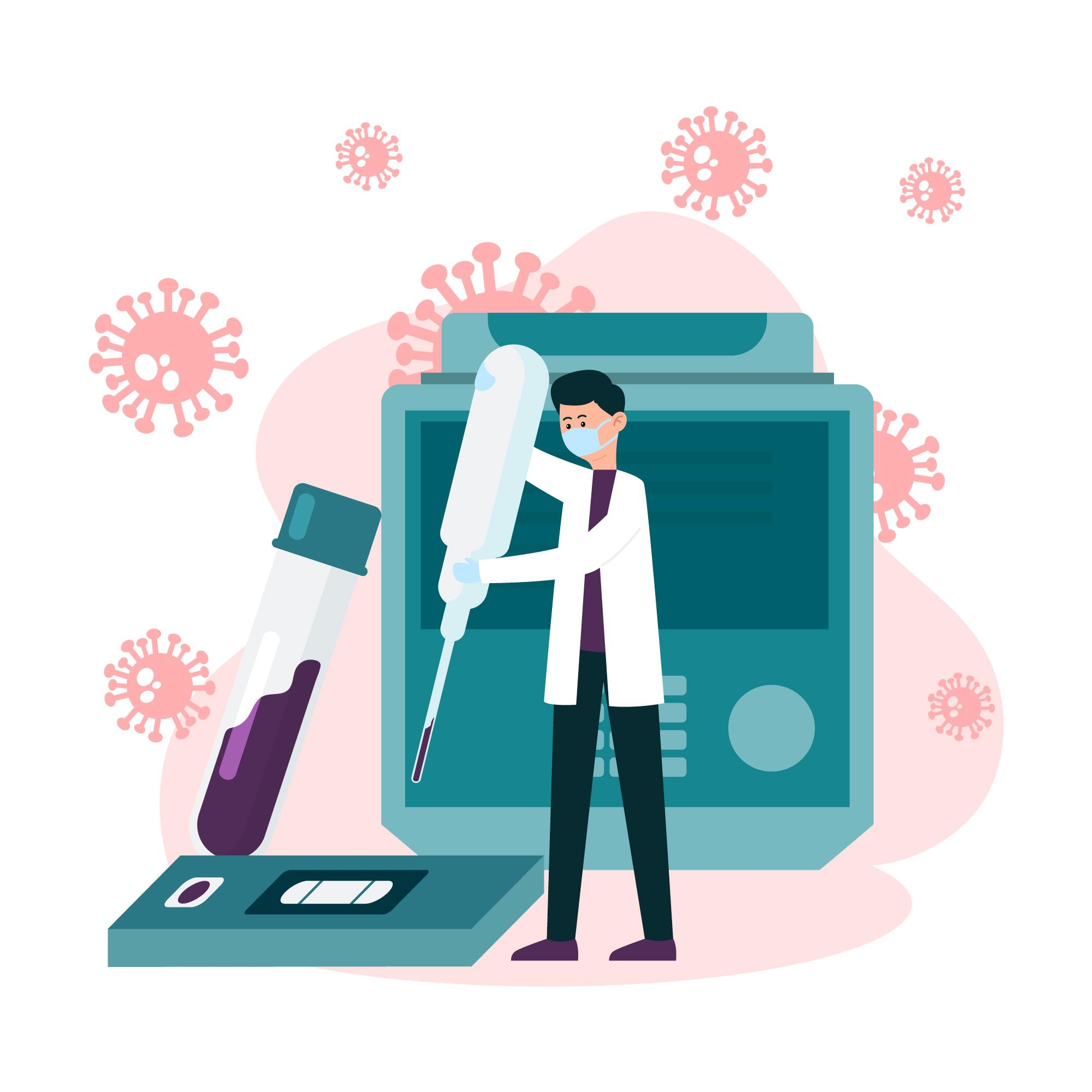
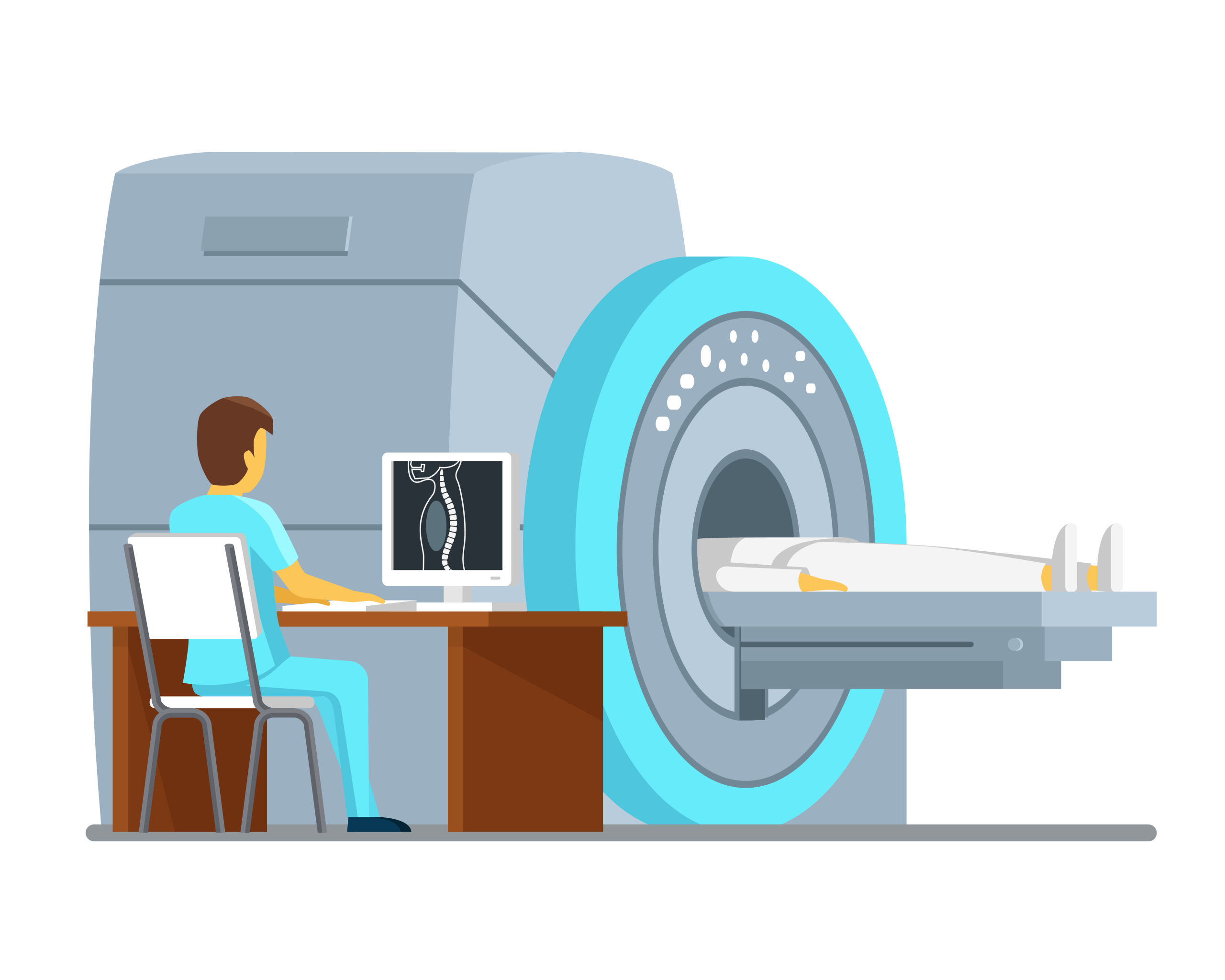
Conrad AI: Revolutionizing Radiology Coding
- Precision-driven radiology medical coding is Conrad AI’s primary focus.
- Complex radiology coding tasks involving CT, MRI, ultrasound, and other imaging modalities are automated by it.
- AI recommendations for CPT and ICD-10 codes are provided to radiology certified coders.
- Simplifies radiology billing and coding, ensuring prompt processing and accurate claims.
- The user-friendly interface and integrated compliance checks are advantageous to all radiology coders.
- Conrad AI is one of the top AI medical coding companies that connects digital intelligence and manual processes.
Cogent AI: Risk Adjustment and HCC Coding Excellence
- Cogent AI empowers cogent healthcare with targeted HCC solutions.
- Addresses how hcc coding used to provide insights into risk scoring and chronic condition capture.
- Acts as a sophisticated risk adjustment tool identifying coding gaps and hcc risk factors.
- Serves as a dynamic hcc coding tool and raf tool for Medicare Advantage and risk-based payment models.
- Facilitates accurate hcc medical coding and supports every hcc coder.
- Stands out in risk adjustment solutions with real-time coding analytics and gap closure strategies.
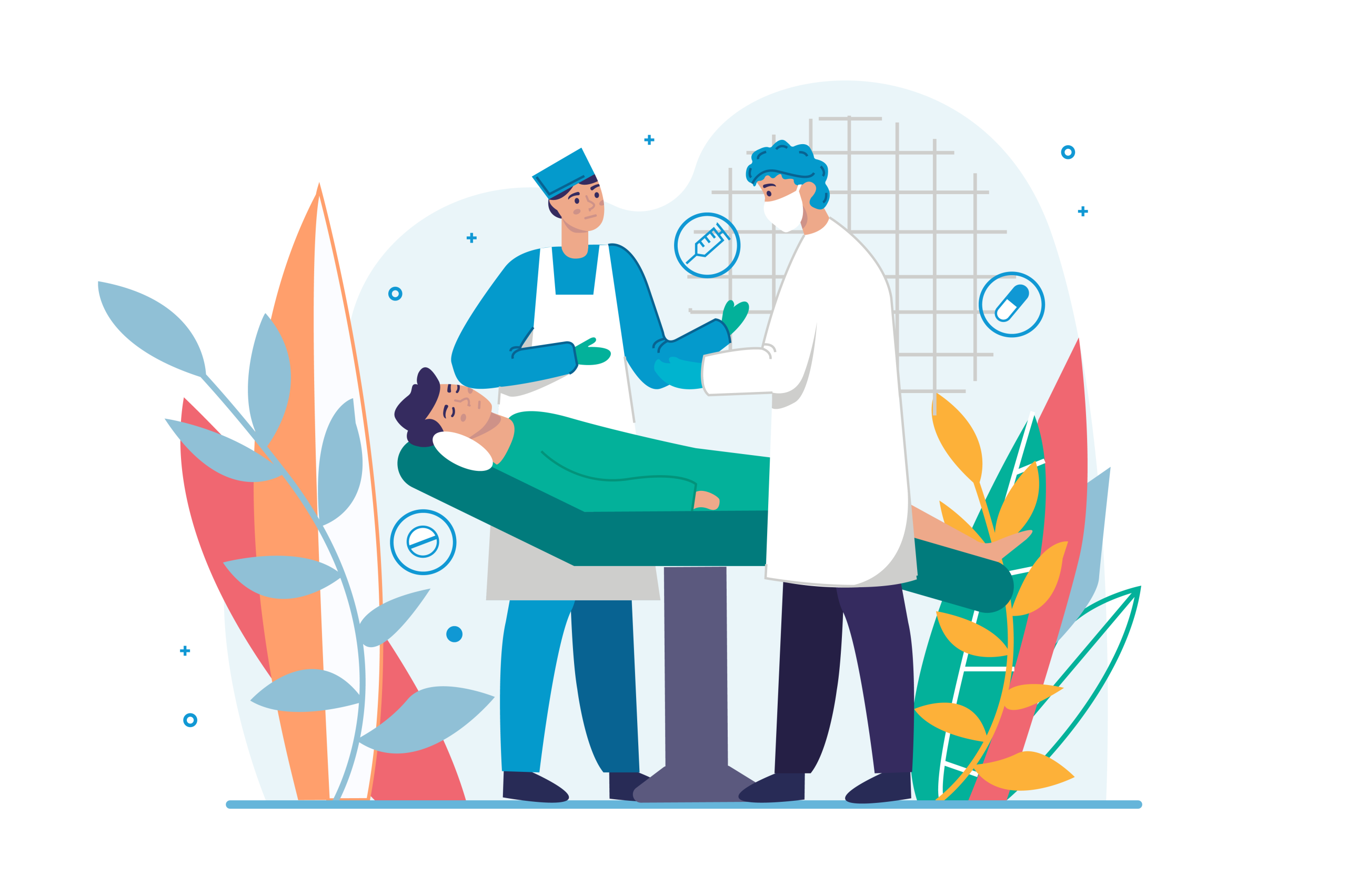
The Future of AI in Healthcare: Transforming Care Delivery & Operations
- Precision Diagnostics with AI Healthcare: Early disease detection and tailored interventions.
- Automation in Medical Coding: Streamlined medical coding, ICD-10, CPT, Tx coding, charge entry, payment posting, claims management, denials management.
- Revenue Cycle Optimization: Automated insurance verification, eligibility, crosswalk, and in and out of network
- Personalized Medicine and Predictive Analytics.
- Risk Adjustment in Population Health.
- AI-Driven Clinical Decision Support.
- Ethical Compliance in AI Deployments.
Conclusion: Why AI in Healthcare Is Here to Stay
In summary artificial intelligence (AI) in healthcare has evolved from a trendy term to a practical and commercial necessity. Whether you are looking to reduce costs, improve patient outcomes, or streamline operations, AI healthcare solutions offer measurable value.
The combination of medical diagnosis AI, coding automation, and real-time analytics represents a holistic transformation. As the AI application healthcare sector continues to expand, organizations that harness the power of artificial intelligence in healthcare will lead the charge into a smarter, more efficient future.
Whether you’re a provider, hospital system, or health-tech innovator, embracing AI and healthcare means enabling better care—for everyone.

